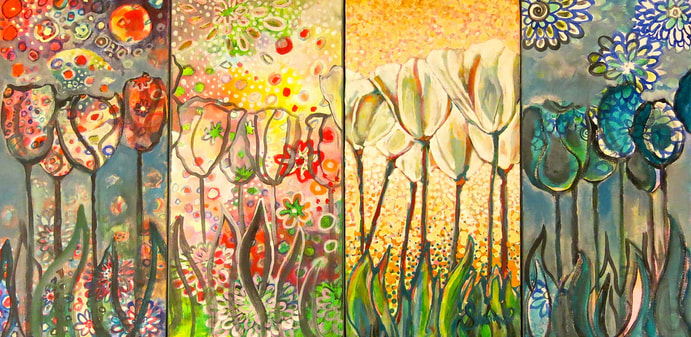|
"Up in the air we— the immigrants— inhabit a limbo that holds the truth that no place will ever feel home again, at least not in an unquestioned way. We move through liminal spaces like airports and airplanes, hotels and waiting rooms. It is here where the boundary resides between you and me, where we stand in the spaces of me and not-me, where home and not being at home intersect."
By Julia Beltsiou in Seeking home in the foreign. Immigration and Psychoanalysis. Picture by Cristina Bernazzani 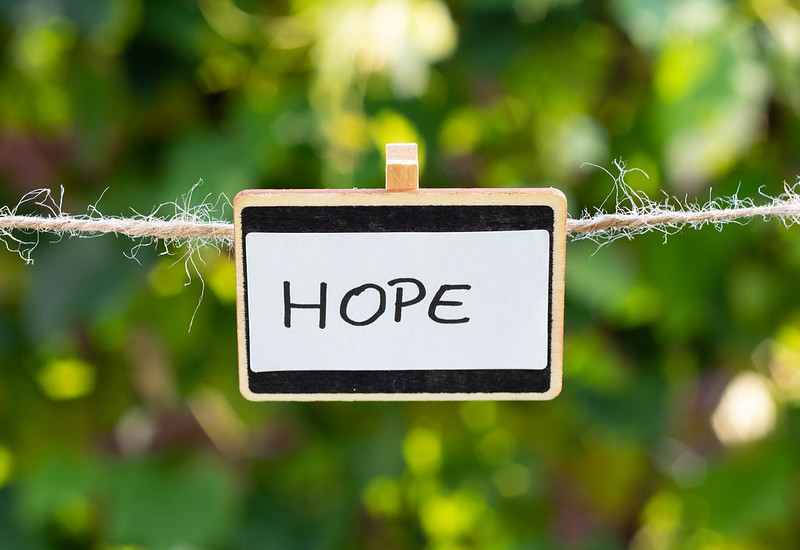 This article was originally published in Rebelle Society online magazine.
I am hopeful during the coronavirus crisis, and this is not an article on positive psychology. It all began with a friend and colleague noticing my hopefulness as I spoke about knowing there is going to be an end to the coronavirus crisis. My hopefulness was just part of a spontaneous reflection after being sick for a few weeks with what looked like coronavirus symptoms. It was emotionally debilitating to prepare for sheltering in place, to deal with the anxiety about the possibility of getting sick with a deadly illness, and then getting sick. I got ill despite washing my hands obsessively a thousand times with careful attunement to where my hands landed. I then fell in despair when feeling ill with fever, body aches, and a cough. I thought I had done everything in my power not to fall sick, but instead, I thought I landed on the ground in defeat. I was aware I had been seeing clients at my psychotherapy office the morning a cough intruded itself uninvited, and was concerned I could have potentially made them sick. I was having internal discussions about how I was going to convey to my clients I was ill with fever and cough at a time in which such symptoms could be an indicator of a deadly illness that was spreading across the globe. My illness forced me to think about how my clients and I were going to navigate our mutual responses to our collective fear of death due to a pandemic that was threatening everyone’s lives. Maybe finding out I did not have the coronavirus has a connection with my hopefulness, but it is not a straightforward connection as it seems. The hopefulness is not necessarily about the relief I am not going to die from it today. Although, I am sort of relieved I am alive and writing about my experience. I am convinced at times that there is no reason to be hopeful based on the stories I hear from my clients. I have heard about how things are stressful, how anxious they feel about being confined to close space, the feelings of isolation and loneliness, and how the dynamics with loved ones seem to get more complicated as they have to inhabit similar spaces for more time than usual. There is no reason to be hopeful when I had to struggle to get tested for coronavirus, and when I was finally able to get tested, I had to wait two weeks to learn if I had the virus. It was a glimpse into realizing how the government was handling the pandemic. I cannot imagine other less fortunate people who exhibit symptoms, but the possibility of getting tested was not existent. There is no reason to be hopeful either when my assessment of the government response to the pandemic is that their response is inadequate. There is no space for hope when the death count continues to increase, and the worst is yet to come according to scientists’ prognosis. There is space instead to feel angry at the abandonment by the government of its citizens by not providing enough equipment to first responders and tests amid a global pandemic. There is fear about financial stability for everyone, and for those of us psychotherapists who have to deal with delayed and denied payments from insurance companies in spite of being at the forefront of delivering mental health services during a global pandemic. There is also space to feel powerless for not being able to do much about something that is out of our control. There is much space for grief for the things we are not doing, the people we cannot see face to face, the anticipatory grief for the death of a loved one who might fall ill, and the grief about the end of life on this planet as we know it. Hopefulness, however, is alive within me, and I am neither your favorite positive psychology psychotherapist, nor do I specialize in coaching people to be positive. In fact, my melancholic personality and my social justice lens color my perspective of life most of the time. My assessment of reality is usually about coming down with the fact life is unfair, and that life can be better for the majority in this globe. I do not encourage denial of reality when the world is falling apart. I tend to point out those feelings we do not want to talk about, hence my gravitation toward deep psychology and the hidden unconscious. However, that strange feeling of hopefulness still arises crawling, afraid of being seen by me. I decided to come to terms with my hopefulness by opening a door to it even when unwelcome. When I sit back and reflect on those two weeks in which I experienced being sick, at some point, I overcame my fear of death. It was clear that whether I had the coronavirus or not, my immune system had the reserved energy to defeat my symptoms. There is something deeper that presented itself during those days of illness, which connects to this feeling of hopefulness, something I try to convey to my clients during these days of uncertainty. The experience of being ill forced me to slow down, to sleep countless hours and to put aside my to-do list. I surrendered to not doing. This experience brought to my awareness how we collectively encourage excessive work ethics. This excessiveness is to the point that if it were not due to a global pandemic, we would still be working extensively to make our egos feel better about who we are and what we can accomplish. It was interesting to realize that as soon as I had no other choice than to shut down my constant tendency to do something, I turned inwards to reflect about my life and struggles. With enough time in my hands, I paused and experienced how good it felt not to move, to stay in solitude, to relax months of tension in my body, and to absorb the impact of this effortless effort in the resting mind. I have been struggling for many years with regulating my autonomic nervous system, and its effects on my body, which manifests in physical symptoms, a byproduct of the day-to-day stress. It was on the day I got sick that all my stress-related symptoms subsided, only to come back the day after I had enough time to worry about day-to-day life decisions again. I was intrigued then how the pause I took in some strange way made me feel better. I am still enjoying my autonomic nervous system having reset my body for two weeks. I am grateful for the lessons learned, the experience of having earned great awareness through my body about the importance of slowing down one more time. There are some decisions that I will make as a result of these lessons once the emergency ends, and it will be around the theme of slowing down. Now, when I hear many wanting to go back to things as they were, it makes me feel like this obsession with doing, talking, and continually socializing with no time for reflection is drying, rough, and meaningless. We barely have time to connect with solitude and ourselves in silence, an opportunity I try to create for my clients as they sit in silence and struggle with what is. I am hopeful the global situation is conspiring with us, helping me and my clients accomplish it. The symbolism of the moment confirms one more time how we dread looking inwards. At the moment, we are forced to sit in solitude, and we have no other choice than to look inwards and deal with the issues we had abandoned for when we have enough time. It seems that now is the time. And in that, I am hopeful. I am hopeful that the planet is forcing us to take refuge, to stay put, in stillness, in solitude, and deal with what is inside. I am so hopeful that so much will come out of this experience of collective reflection, and that some dysfunctional patterns taking place in the way humans relate will change. I am hopeful we will pay more attention to our needs to reset our bodies and taking time off. I am grateful for silence as it has always been a great friend even when I have hated it. I am hopeful that our planet is taking time off from us, from our carelessness and mistreatment of her. I am hopeful because this is one more time for us to think about our existence as a human species, which is something we take for granted. I am hopeful that we will be more intentional in our connections when we finally see each other again. I am hopeful that even though it is painful, we will find our way out of this crisis. And, I am grateful that I am finally able to embrace my hopefulness as it finally found some space to inhabit within me. 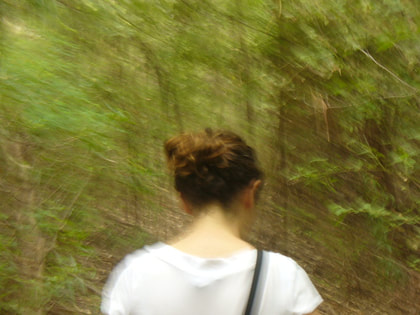 It is that time of the year in which life comes to full circle. It is that time of the year when you sit back and remember what it was, how it was, how it felt, how it shaped your understanding of today. It is that time of the year in which pain revisits you. The end of the year in which you remember those experiences. The end of the year in which you are still in shock about what happened around this time, after this time, at a later time. The end of the year in which you are still in shock about who you were some… some years ago. The end of the year in which you revisit the Dark Side… a reminder of the potential of who you could be, who have you been, who you fear to be, who you do not want to be. The end of the year in which you count your losses and disappointments. The end of the year in which you are marveled at how you survived. The end of the year in which revisiting the Dark Side is like revisiting home. The end of the year in which you wish to exorcise the Dark Side within you And run away…. And jump into the deep ocean. And feel connected again with the whole of who you are. To feel connected to multiple parts sometimes forgotten, sometimes unseen, sometimes invisible. To feel connected to the Dark Side, to the unnamed, to the unspoken. To feel connected to the Light within you. Once remembered just breath… And stare at a beautiful point in the horizon And move mindfully as you remember And connect with your skin by feeling How your body changes as you revisit these memories, How you try to resist to be present as the memories rush into your mind…uninvited, How you try to disconnect from your uncomfortable emotions, How you go to places like…blame and shame and disappointment and victimhood, How life feels heavier as you remember, like if you were living it and trapped in it again. How it feels so heavy it would be better to give up the fight, the survival, the thriving after what it was. It is that time of the year…that time of the year again in which you are at awe at how you survived. There is a taste of victory within by revisiting these painful memories and acknowledging you fought like no one could imagine you could fight. Even when it feels so bad to remember. Even when it feels there was no fight. Even when you feel like a looser. Even when you feel you surrendered by leaving it behind and moving on to a wonderful and better life. It is that time of the year in which you realize how those painful memories have taken you to a path you did not dare to name before, to discover, to search for, those parts of you unacknowledged but within reach. How you were blooming all along without even knowing it. How you learned to trust your own wisdom, your insight, your intuition. And fall in love with knowing your intuition was always right. Your inner voice showed you the path to follow out of a nightmare. It is the end of the year in which you were reminded of what it was, how it was, how it felt, how it shaped your understanding of today. The end of the year…again. 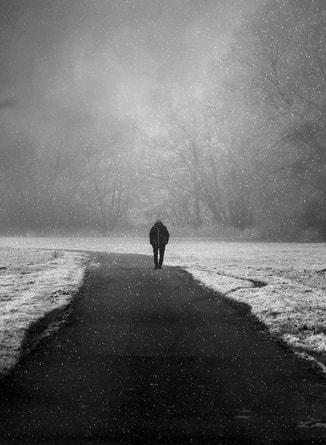 One day you finally knew what you had to do, and began, though the voices around you kept shouting their bad advice -- though the whole house began to tremble and you felt the old tug at your ankles. "Mend my life!" each voice cried. But you didn't stop. You knew what you had to do, though the wind pried with its stiff fingers at the very foundations, though their melancholy was terrible. It was already late enough, and a wild night, and the road full of fallen branches and stones. But little by little, as you left their voice behind, the stars began to burn through the sheets of clouds, and there was a new voice which you slowly recognized as your own, that kept you company as you strode deeper and deeper into the world, determined to do the only thing you could do -- determined to save the only life that you could save. 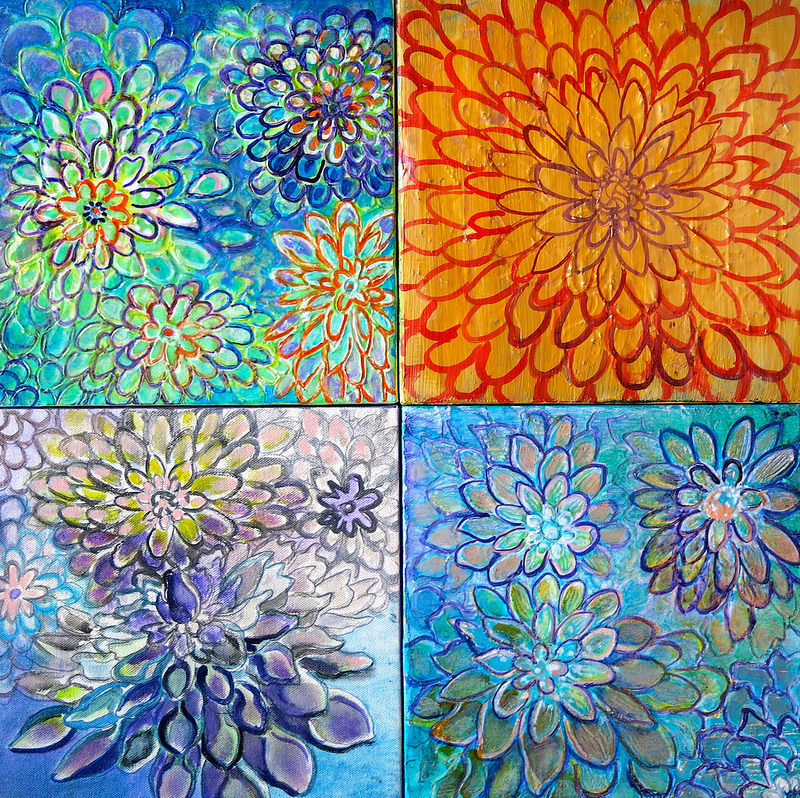 Suffering can become productive...every advance in the process of mourning results in a deepening in one's relation to our inner objects (internalized experience of others), in the happiness of regaining them after they felt to be lost, in an increased trust in them and love for them because they proved to be good after all. -Melanie Klein Even in the face of trauma and tragedy, there is nothing more precious than taking ownership of your own healing process. The healing of victimization comes out of taking control of your life taking you away from the experience of the victim and perpetrator dynamic in which you constantly find yourself becoming someone else's victim. Taking control implies surrendering the urge to blame external factors, the other, life and god, but to name those and also the ways you have contributed to your own experience.
In which way pointing at external failure limits the extend of what you can do for yourself? In which way the healing comes from not confining yourself to the circumstances but transcending them beyond others limiting ideas of you or what you can become? To what extent never finding the ways you contribute to your current existence is making you unaware of your own blind spots? Here I share an extract of an inspiring thought which deeply resonates with the idea of taking responsibility for your life: Your greatest enemy is not found in your circumstances, limitations, other people's opinions of you, your seemingly failed dreams and expectations, your apparent impossibilities, or any other "obvious" reason outside of You. It's easy to point fingers at all the broken pieces, at everything that isn't working in your life. Yet this is a massive waste of your creative energy & heart investments. Blaming your outer world is a distraction that keeps you from what's really happening inside. Your greatest enemy lives within you, and it is slowly eating you alive like an unwelcome parasite. -Andrea Balt 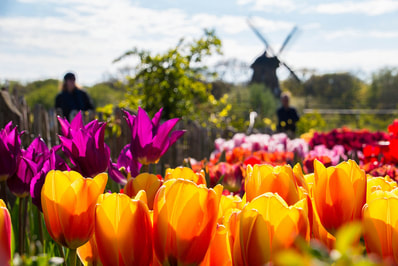 As the end of the year approaches, is normal to review failures and successes, so I am. I look at this psychotherapy practice as a garden I planted a few years ago and now I am happy to enjoy its flowers. They are of diverse colors, fragrances and shapes. They have different needs expressing their beauty differently and uniquely. All the flowers together create a beautiful landscape. These are my clients. I write to the ones that for one reason or another decided to knock at my door for a little help, a little gardening. They have impressed me with their stories of survival, struggle, bravery and courage. I am impressed with how the psychotherapeutic work has been an addition to their already path in life which has helped many to have a deeper understanding of themselves. As a result, many have clarified life confusions. I am honored to walk this path with each of you, the clients who came through my door, the ones who are coming and the ones who used to come. At the end of this year, I find myself thinking about how honored I am to be able to walk this path with you. Merari  Dreams tell us so much about ourselves and how we are experiencing our lives and interactions with others. It is during our dreams that we dear to speak the things we are afraid to say and to think those thoughts we hesitate to elaborate. It is an opportunity to get to know ourselves deeper and at times, to not make any sense without the fear we would be labeled as crazy as there are no rules. In thinking about dreams, I share a poem from Jorge Luis Borges. If a dream were (as they say) a truce, a pure repose of the mind, Why, if you wake up abruptly, Do you feel that you have been robbed of a fortune? Why is it so sad to get up early? The time it strips us of an inconceivable gift, so intimate that it is only translatable to a torpor the vigil bronze with dreams, which may well be shattered reflections of the treasures of the shadow, of a timeless orb that is not named and which the day deforms in its mirrors. Who will you be tonight in the dark dream, on the other side of your wall? El sueño - Jorge Luis Borges De «El otro, el mismo» (1964) 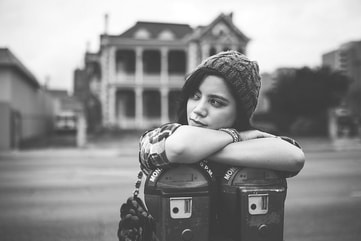 A boring life. Period. That is what happens when we are incapable of feeling ourselves deeply. The idea of feeling for many is terrifying. Feeling requires vulnerability and trusting emotions have an important place in our lives as they provide us with flavor, excitement, shape, and color to ordinary life events. Without them, our lives would be full of boring, flavorless experiences. We consume flavorless experiences when we deny ourselves from being present with emotions. It is an experience of numbing and disconnection from how we feel, carelessness for others’ feelings or the emotional impact we have on others. We can risk making poor life choices as we do not have to feel how terrible those choices can be for ourselves. Other times we consume flavorless life experiences when we only allow certain feelings to emerge such as anger or excitement. We restrict our emotional plethora only to allow ourselves to be present with those well-known and familiar feelings even if our patterns to only be in touch with those emotions are insanely destructive. Our challenge is to have relationships and experiences that help us access our extraordinary human capacity to feel ourselves deeply and to feel the other and with others. This requires attunement to our inner emotional flavors. Just as when we taste a food, we polish our skills in learning to differentiate flavors by its taste but also by integrating our understanding of its texture and smell. The same can be experienced with feelings. Each feeling tastes different. Each has its own texture, color, and smell. We can describe them well to others. We can live embracing them and knowing that feelings are a part of us needing acknowledgment for the place it deserves. Feelings are not going anywhere even if we insist on not allowing ourselves to embrace them. Feelings are not going anywhere even if we insist in not naming or acknowledging them. Feelings will stay with us and will come in intense flashbacks, nightmares, substance use or physical pain if we do not give them the space they deserve. We do not taste life fully and will live in misery when we do not feel and embrace those parts that have made who we are. A dull and painful life becomes a part of our life experience as long as we do not welcome a life with all its flavor and color…a life of emotions. 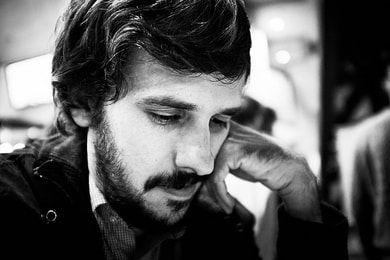 That story many survivors of abuse, trauma, and pain carry within at times seems like a turbulent current of water that wants to take over everything it encounters. The story is powerfully painful. It shows up at unexpected times. What to do about the story they themselves do not want to hear? Should I write a book, a song, a poem? Should I then publish a piece of art that reflect my story, and as a result, humiliate the ones who caused me so much pain? Should I publish my story so that I become stronger and unafraid of talking about my past? Should I tell everyone so they understand why I might not seem normal? Should I just vent my story in a first therapy session so that I get rid of it? What to do with my story? What to do with what happened? What do we do with it? As it appears burdensome, heavy, crazy making and unapologetically cruel. What to do with the story of abuse? My two cents is that it is not only about the story but the ways in which survivors tell the story to themselves. It is also about the ways others listened to their stories and responded to them. Do they walk around telling their stories revictimizing themselves all over again? Do they tell their stories as a way to purge their sinful guilt that there were times in which they seemed to collaborate with whoever hurt them? And that sometimes they love the ones who hurt them? Do they tell their story because others blamed them so they want to find someone who would finally not blame them anymore? Do they tell the story as a way to get rid of reality? As a way to forget the unbearable? As a way not to think and feel about it anymore? I propose you DO tell the story but slowly. Grab a cup of tea or coffee and sit with me and I will listen. I can tolerate and bare with you as you talk. I suggest you do not live your story in isolation but with a trusted other who will be with you in the difficulty of expressing your pain. And sit comfortable because it will take a while. It will take a while. |
AutorMerari E. Fernández Castro, Archives
November 2020
|

